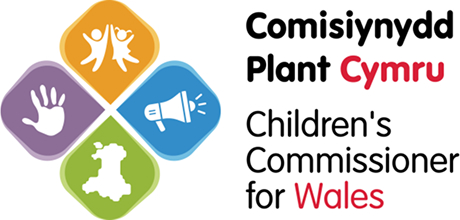St Paul’s Church in Wales School: Children’s Voices Challenging Racism
St. Paul’s Church in Wales Primary school is in Grangetown, Cardiff. An inquiry-based approach to learning is used in the school to enable children to shape their own learning through asking questions and investigating ideas they are most interested in. Over a term in 2021, Year Six focussed on the inquiry question, ‘What does it mean to belong?’
Children chose areas of focus across this broad inquiry, which included:
- finding out about the history of the British Empire;
- exploring the experience of refugees and asylum seekers through books and news;
- exploring what makes them feel like they belong;
- celebrating Black History Month by focussing on local hero Betty Campbell;
- exploring their own vision for the Commonwealth;
- writing a letter to the Queen, and receiving her reply.
As part of their inquiry children made their own video explaining how they challenge racism when they see or hear it. Through this video children explored the principle of equality and non-discrimination. Children learnt that all humans have equal access to human rights and that everyone has the right to equality. Vital to this inquiry was that children explored their own role as active citizens, with the right to express their opinions and be listened to.
At the end of the inquiry the children participated in a performance of understanding, where they presented their own ideas about a new vision for the Commonwealth. Their ideas included education for all, meeting global environmental targets and embracing all religious beliefs. The concept of their own right to a voice was an essential part of developing their understanding of democracy. The children were taken seriously by adults in positions of influence: the Queen wrote back to their letter, and they discussed their views with the Children’s Commissioner for Wales. They experienced that their voices were listened to, and that they matter.
Ysgol Plasmawr: Balch (Proud)
Balch is the school’s pupil-led anti-racism group. They meet once a week to hold structured discussions about equality and discuss any incidents/cases of racism at the school. They also discuss and deal with any concerns raised by pupils.
The group has a role in educating the school’s staff as well as its pupils. Staff can approach the group for their opinion and to check if something is suitable. There are also plans for Balch to train staff by running a workshop during an INSET session. They intend to highlight important issues and tackle ‘unconscious bias’.
The group felt that lack of education is often the reason for cases of racism in the school. They try to engage with years 7-9 specifically to find out what their concerns are and what the group can do to improve pupils’ experiences within the school. They also hope to use assemblies and registration periods to do more to raise awareness, e.g. by promoting an appreciation of different cultures.
The group has realised that since they began their interventions, racist ‘jokes’ and language have been occurring less frequently in the younger years. Covid and the lockdowns caused problems in terms of reaching pupils, so an increase in behaviour was seen as pupils returned to school in Summer 2020 but this has reduced again as Balch continue with their work.
There are also different equality groups at the school, e.g. Digon (Enough) (an LGBHT+ rights group). This eases the pressure on specific pupils in the school having to deal with all cases of inequality and instead provides an opportunity for pupils to tackle inequalities for different groups on several fronts.

